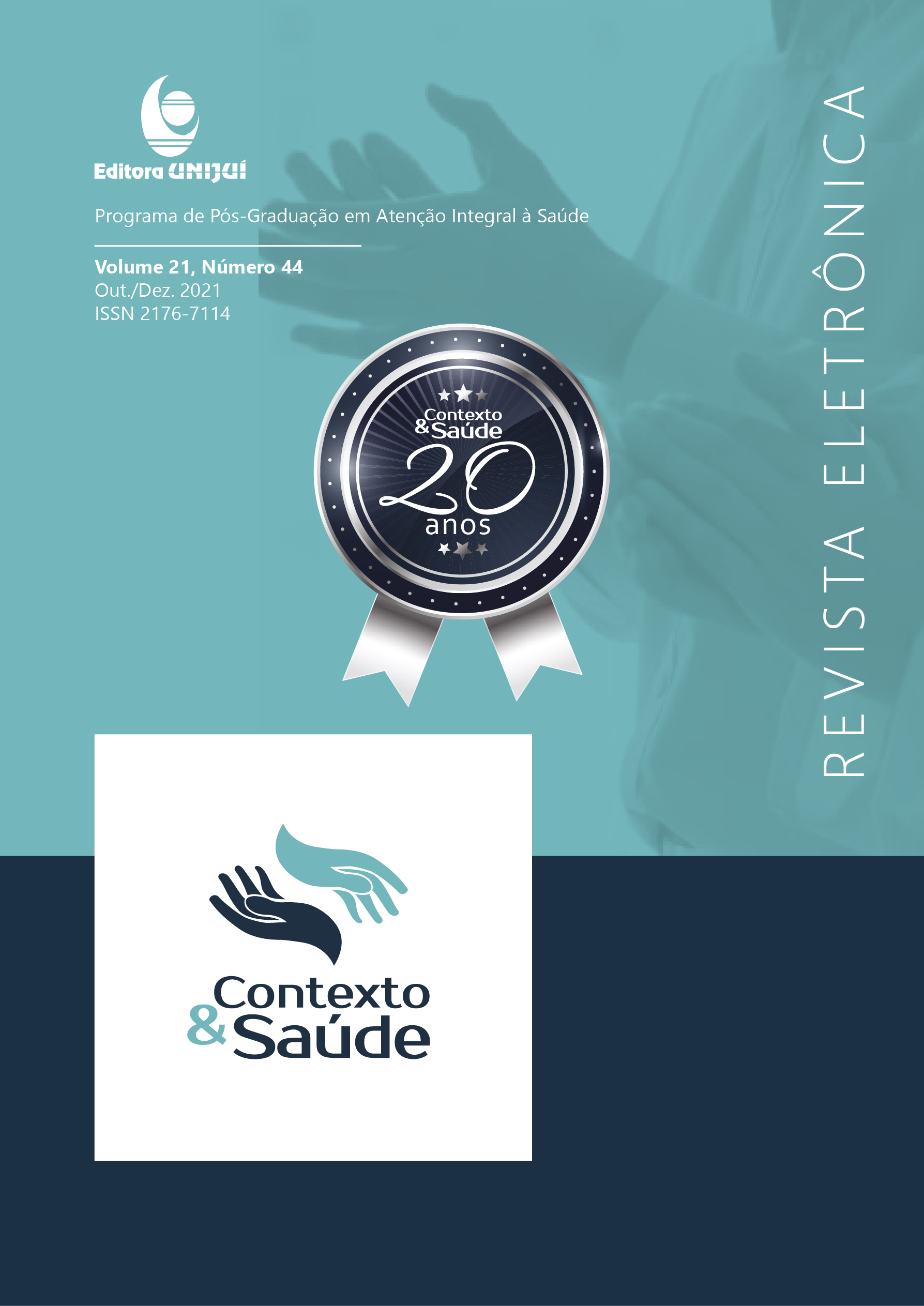Body image, self-esteem, perception, balance and grip strength of elderly women after Water Pilates
CORRELATION BETWEEN POSTURAL BALANCE AND HANDGRIP STRENGTH IN ELDERLY WOMEN AFTER PILATES IN WATER
DOI:
https://doi.org/10.21527/2176-7114.2021.44.11748Keywords:
Body Image, Self Concept, Aging, Postural Balance, Hand Strength, AgedAbstract
This study aims to investigate whether there is an association between body image, self-esteem, perception of aging, postural balance and handgrip strength in elderly women after practicing Pilates in Water. Descriptive, quasi-experimental study, with a sample composed of sedentary elderly women with preserved cognitive and functional independence. The instruments Body Appreciation Scale (BAS), Rosenberg's Self-Esteem Scale, Aging Perceptions Questionnaire (APQ), TUG (Timed up and go) and the manual dynamometer were used. The PA protocol was divided into warm-up, strengthening in general and stretching. Statistical analysis was performed using Pearson's correlation coefficient and Spearman's correlation test, and the intensity was classified by Malina's criterion. 33 elderly women (71.5 ± 5.48 years old), overweight (27.02 ± 4.42) and good body image, self-esteem and perception of aging participated in this study. They also had a low risk of falls and low handgrip strength. The elderly women presented, after the Pilates in Water exercises protocol, a moderate association between body image and perception about aging with regard to positive beliefs about how to deal with aging. Still, a high association was observed between postural balance and handgrip strength. It is concluded that these data are important because means must be directed to provide healthy aging and quality of life for the elderly.
Downloads
Published
How to Cite
Issue
Section
License

This work is licensed under a Creative Commons Attribution 4.0 International License.
By publishing in Revista Contexto & Saúde, authors agree to the following terms:
The works are licensed under the Creative Commons Atribuição 4.0 Internacional (CC BY 4.0) license, which allows:
Share — to copy and redistribute the material in any medium or format;
Adapt — to remix, transform, and build upon the material for any purpose, including commercial.
These permissions are irrevocable, provided that the following terms are respected:
Attribution — authors must be properly credited, with a link to the license and indication of any changes made.
No additional restrictions — no legal or technological measures may be applied that restrict the use permitted by the license.
Notes:
The license does not apply to elements in the public domain or covered by legal exceptions.
The license does not grant all rights necessary for specific uses (e.g., image rights, privacy, or moral rights).
The journal is not responsible for opinions expressed in the articles, which are the sole responsibility of the authors. The Editor, with the support of the Editorial Board, reserves the right to suggest or request modifications when necessary.
Only original scientific articles presenting research results of interest that have not been published or simultaneously submitted to another journal with the same objective will be accepted.
Mentions of trademarks or specific products are intended solely for identification purposes, without any promotional association by the authors or the journal.
License Agreement (for articles published from September 2025): Authors retain copyright over their article and grant Revista Contexto & Saúde the right of first publication.

